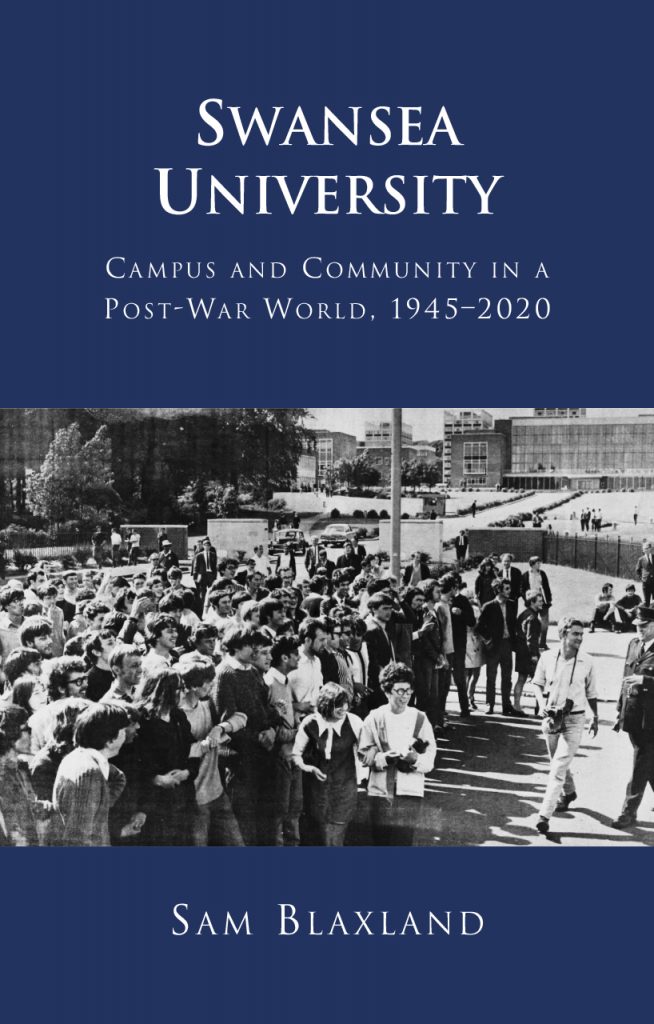
Sam Blaxland introduces his new book, Swansea University: Campus and Community in a Post-War World, 1945–2020.
At the end of 2016, I was employed by Swansea University to collect a series of oral history interviews that would be part of marking the institution’s centenary in 2020. The following year, the project expanded and we decided that a book could be written to mark this occasion. The result is Swansea University: Campus and Community in a Post-war World, 1945–2020. By 2020, I had interviewed almost a hundred people, and the fruits of this oral history project are woven into the work.
This is one of the things that makes the book a very different kind of institutional history. Alongside personal testimonies, I used a huge wealth of resources from, the University’s archives to write a history that very much focuses on Swansea, but which also uses it as a case-study for much bigger, broader themes. Hence, the book is not a sanitised or methodical chronicling of the great and the good of Swansea University life. It certainly talks about the institution’s development but it also pays a great deal of attention to themes like youth culture, protest movements and the way in which higher education establishments have interacted with policy makers, their local communities and the powerful forces of societal and global change.
The book’s chapters focus on how the Second World War changed the nature of university study and society more broadly; how architectural developments and a radical building programme helped forge an academic community at Swansea; how the politics of the 1960s and 1970s impacted universities and changed the whole concept of authority; how places like Swansea took a greater role in local affairs in the difficult years after 1973; and how the modern institution has had to become a truly global body. I believe the book will have a wide appeal, both to current and former staff and students of Swansea University, but also to anyone interested in the social history of post-war Britain, and the changing nature of student and university life.
Sam Blaxland is a Post-doctoral Fellow and Tutor in Modern History at Swansea University.


